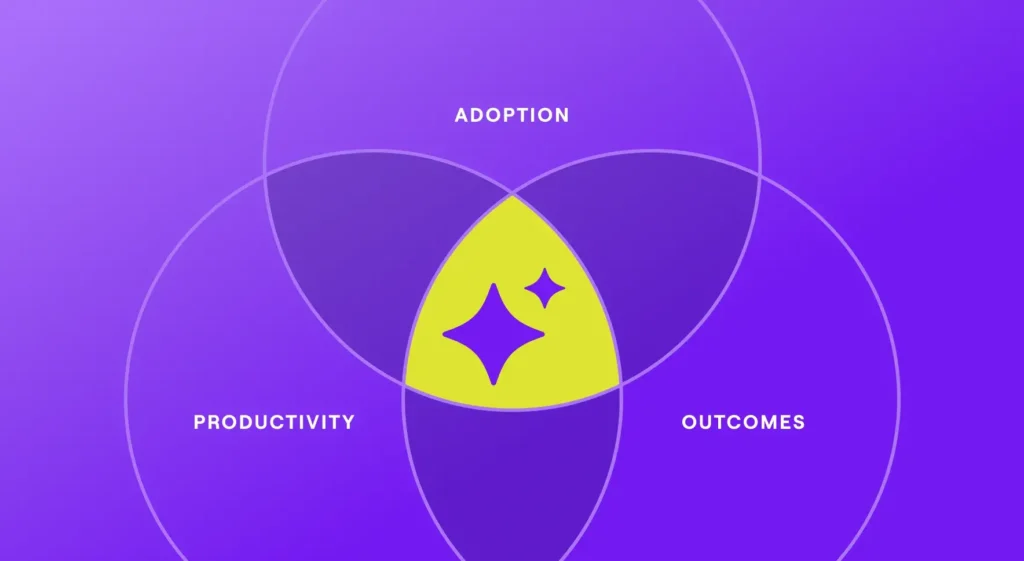Engineering leadership involves guiding and motivating a team of software engineers to achieve organizational goals—most importantly, delivering high-quality software products. Engineering leadership encompasses a range of skills and responsibilities that go far beyond only technical expertise; engineering leadership involves effective communication, strategic planning, and fostering collaborative work environments.
Leadership in engineering management can require the ability to understand unique challenges associated with a task as complex as software development. Strong engineering leaders possess a deep understanding of software engineering principles and practices, helping them make more informed decisions and provide better guidance to their team members. They stay up to date with the latest industry trends and technologies, ensuring that their team remains at the forefront of innovation.
Effective communication is a cornerstone of engineering leadership. Skilled leaders can articulate the organization’s vision and goals to their team, better enabling them to get a whole team on the same page. They can encourage collaboration and transparent communication Additionally, they serve as a bridge between the engineering team and other stakeholders, such as product managers and executives, translating technical concepts into actionable insights.
Strategic planning is another essential aspect of leadership in engineering management. Being a successful engineering leader often means being able to set clear goals and objectives for the team, prioritizing tasks and allocating resources effectively. It’s important to develop robust project plans, considering factors like timelines, dependencies, and risk management. By fostering a culture of strategic thinking, an engineering leader can better ensure that the team works towards long-term goals while adapting to changing circumstances.
Creating a collaborative work environment is vital for engineering leadership. A leader often must foster a culture of trust, respect, and psychological safety in order to encourage team members to share ideas, take risks, and learn from failures. It can be vital to promote continuous learning and professional development, providing opportunities for skill enhancement and growth. By cultivating a supportive and inclusive atmosphere, an engineering leader can maximize the potential of their team, leading to improved outcomes, such as increased productivity and job satisfaction.
Importance Of Leadership In Engineering
The importance of leadership in engineering can hardly be overstated. Effective leadership is essential for successful software development projects. Engineering teams rely on leaders to provide the vision, guidance, inspiration, and collaborative energy that enables them to deliver high-quality software solutions.
One of the biggest reasons leadership is crucial in software engineering is the complex nature of the discipline. Software development involves intricate problem-solving, coding, and the integration of various components. That’s why it’s important for an effective leader to possess the technical expertise to understand these complexities and make informed decisions that drive the project forward. This way they can not only offer guidance on architecture, design patterns, and development methodologies, but understand the struggles and challenges of their teams.
Leadership in software engineering can also play a vital role in managing team dynamics. It can be important to create an environment of trust and open communication, where team members feel comfortable sharing ideas, discussing challenges, and collaborating effectively. Strong leaders can foster a culture that encourages learning and professional growth.
Leadership in software engineering is also essential for aligning the team’s efforts with the organization’s goals. Setting clear objectives and establishing project priorities helps ensure that the team’s work is aligned with business strategies. It can be important to provide a strategic vision that guides the team’s direction, making sure that software development efforts are focused on delivering value to the end-users and meeting market demands.
Leadership Skills Development For Engineers
Leadership skills development for software engineers is crucial for their professional growth and the success of software projects. While technical expertise is essential, honing leadership skills can empower engineers to take on more significant responsibilities, collaborate effectively, and drive innovation within their teams.
One effective way to develop leadership skills is through participation in engineering leadership programs. Programs such as these offer a structured approach to developing leadership abilities specific to software engineering, and provide training on topics such as communication, team building, decision-making, and strategic thinking.
Reading engineering leadership books, like Accelerate by Nicole Forsgren, PhD, Jez Humble, and Gene Kim, can be highly beneficial for skill development as well. Engineering leadership books often provide insights from experienced leaders and offer practical guidance on various aspects of leadership.
Engineers may also be able to benefit from seeking out leadership opportunities within their organizations. Taking on roles such as a technical lead, mentor, or project coordinator can allow them to practice leadership skills in a practical setting.
Leadership skills development for engineers can be highly important for their professional growth and success in the field. Engaging in engineering leadership programs, reading relevant books, and seeking leadership opportunities within their organizations can all be effective ways for engineers to enhance their leadership competencies and contribute to the achievement of software project goals.
Engineering Leadership Styles
Software engineering leadership styles vary based on the preferences and approaches of individual leaders. Different styles can be effective depending on the team dynamics, project requirements, and organizational culture. Some common engineering leadership styles include:
- Transformational Leadership: Transformational leaders might try to inspire and motivate their teams by setting a compelling vision and high standards. They typically aim to foster an environment of trust, encourage innovation, and empower team members to reach their full potential.
- Servant Leadership: Servant leaders can prioritize the needs of their team members, supporting them in their personal and professional growth. They might focus on serving the team, removing obstacles, and facilitating collaboration, creating a culture of empathy and mutual respect.
- Democratic Leadership: Democratic leaders involve team members in decision-making processes, valuing their input and ideas. They promote open communication, collaboration, and consensus-building, fostering a sense of ownership and commitment within the team.
It’s important for engineering leaders to be adaptable and capable of employing different styles based on the context. A versatile leader might be able to assess the needs of the team and project and adjust their approach accordingly, maximizing the team’s potential and achieving desired outcomes.
Examples Of Leadership In Engineering
Leadership in software engineering can be demonstrated in various ways, with examples of effective leadership practices contributing to the success of software projects. Some notable examples of leadership in engineering include:
- Setting a Clear Vision: It’s important to make sure that teams are operating toward a shared goal. In order to collaborate effectively, it can be crucial to establish a shared vision of that goal. Doing so can help ensure that a team is on the same page as they move forward. This is an important example of leadership in engineering.
- Empowering and Mentoring Team Members: Effective leaders often empower their team members by delegating responsibilities and providing them with autonomy. They can encourage growth by offering mentorship, guidance, and opportunities for skill development
- Facilitating Effective Communication: It’s crucial for effective engineering leaders to facilitate open and transparent communication within the team. By establishing an environment of trust and collaboration, leaders enable effective problem-solving and decision-making.
- Resolving Conflicts and Overcoming Challenges: Leaders in software engineering don’t only need to have the ability to foster positive collaborative workplace practices—it can also be important to effectively mediate conflict between team members should it arise. By fostering effective conflict resolution, leaders can often prevent issues from escalating and more effectively maintain a positive and productive team atmosphere.
- Promoting Innovation and Continuous Improvement: Engineering leaders encourage a culture of innovation within their teams. They promote the exploration of new ideas, encourage experimentation, and create space for learning from failures. By fostering a mindset of continuous improvement, leaders inspire creativity and drive innovation in software engineering processes and practices.
Leadership in software engineering is exemplified through practices such as setting a clear vision, empowering and mentoring team members, facilitating effective communication, resolving conflicts, and promoting innovation and continuous improvement. These examples of leadership show how individual leaders can contribute to the overall success of software projects and help create an environment of collaboration, growth, and achievement.






